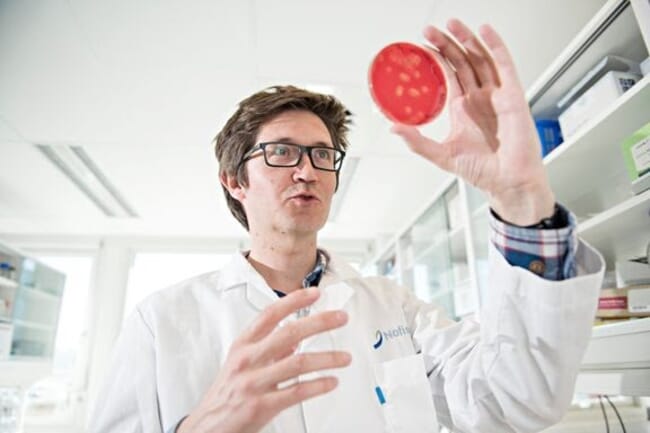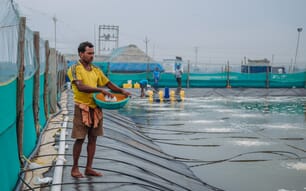
Moritella viscosa is one of the types of bacteria that causes ulcers on the salmon. Here, Christian Karlsen grows two varieties of the bacteria in the lab. © Jon-Are Berg-Jacobsen, Nofima.
Salmon can get ulcers in cold seawater. A bacterium called Moritella viscosa causes these winter ulcers. It is possible to vaccinate against these winter ulcer bacteria, but the problem is that the bacterium has many different strains. The vaccine works much better if you develop it using the correct strain of bacteria.
Christian René Karlsen, a senior scientist at Nofima, has been integral to the research in this field and has recently published a new paper on the subject.
Speaking about his work he noted that high ulcer development can occur even in fish that have been vaccinated. In a recent trial where fish with ulcers were mixed with healthy fish, 15 percent of the fish suffered deep ulcers and 25 percent suffered superficial wounds.
“The vaccine isn’t perfect. That is why we have moved on,” he said in a press release.
In addition to looking at the effects of the different Moritella viscosa strains, the scientists have learned how the bacterium begins to harm the fish.
“It sticks to the surface of the scales. It then multiplies and forms a colony. The scales are not the outermost part of the salmon. “The scales are covered in mucous. The bacterium manages to get in between this layer of mucous and the scales. They can then create large wounds that can even reach muscle tissue,” Karlsen explained.
When a fish is vaccinated, it has the first bacteria on its scales. In unvaccinated fish, the bacteria go deeper into the skin earlier. There are now several vaccines against different Moritella viscosa bacteria on the market.
The research has been conducted in collaboration with the vaccine company Pharmaq, and financed by the Research Council of Norway.



